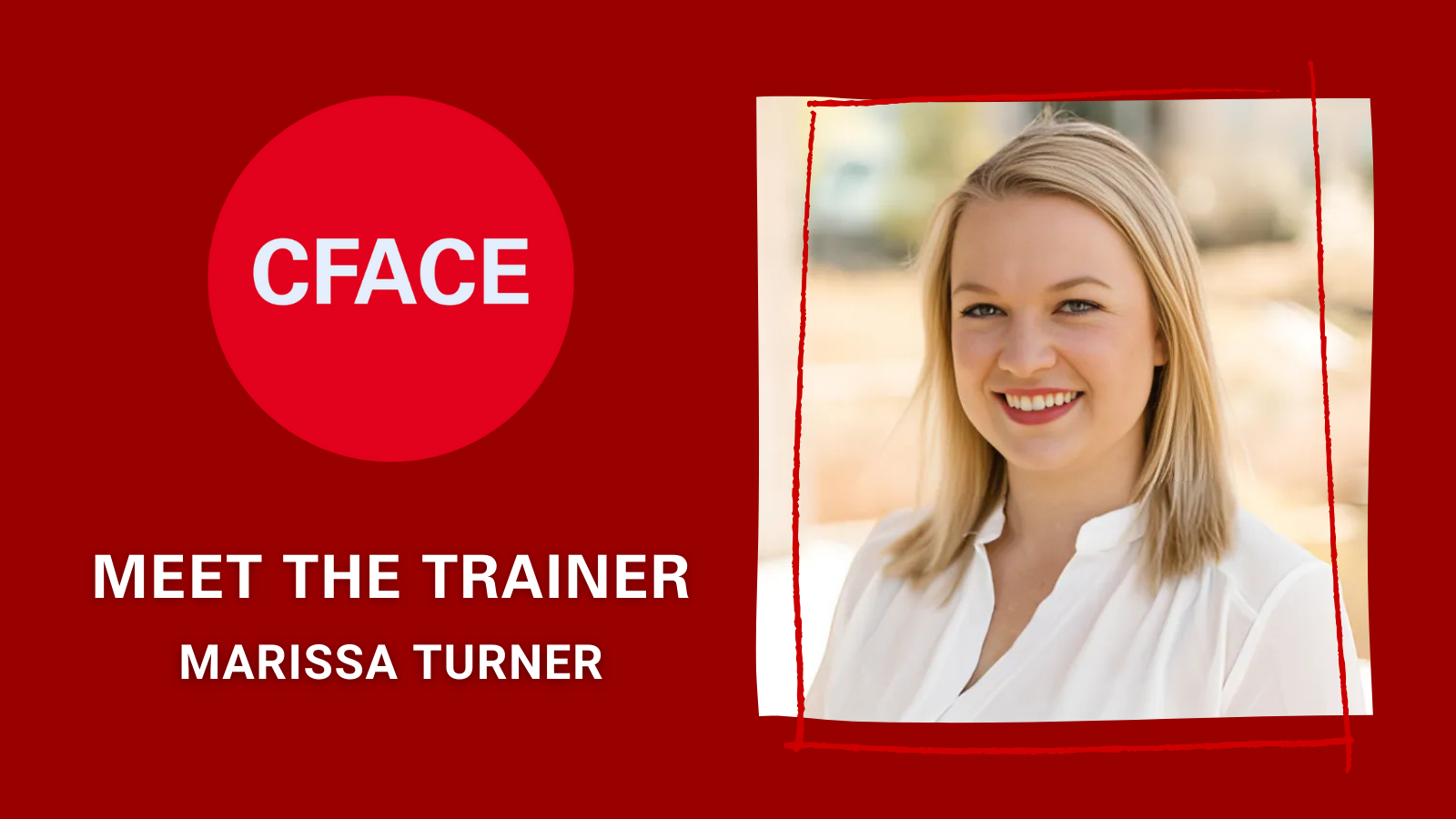Meet the Trainer: Marissa Turner

Marissa Turner is one of the Center for Family and Community Engagement’s incredible trainers. She agreed to sit down for an interview so we could learn more about what it means to be a CFACE trainer and also to honor Women’s History Month.
Before Marissa started at the Center, she worked as a patient advocate at a hospital, working directly with individuals and also providing training for new staff coming in. She led trainings related to customer service and working closely with patients, which she enjoyed. Also, growing up, she admired her mother, who worked as a preschool teacher, a substitute teacher, and eventually became the director of a preschool and later the supervisor of the YMCA’s childcare program. Her mother’s community-based work and passion for teaching are a big part of what inspired her to pursue her education in community engagement, her work as a patient advocate, and eventually her role as a trainer for the Center. When she saw the CFACE job listing for “Trainer,” she knew that it would be an excellent fit for her passion, background and education.
And it worked out, because Marissa has been working at the Center as a trainer for over six years!
“I love that the Center is focused on community engagement and the fact that it’s ever-growing based on our community’s needs. Whatever the needs are, that’s where we grow and provide new trainings,” Marissa shared.
Marissa currently facilitates “Navigating Child and Family Teams: The Role of the Facilitator” and “Connecting With Families: Family Support in Practice.” She explained that the Center has changed over time to adapt to meet different needs. Although some of the trainings that Marissa facilitated when she first started at CFACE are no longer offered, there are new trainings that cover topics that are currently needed by social workers and the community. Her favorite training is “Navigating Child and Family Teams: The Role of the Facilitator,” which she has been teaching since she started working here.
“Navigating Child and Family Teams: The Role of the Facilitator is my favorite because it’s connected to what I used to do as a patient advocate. So, I’m bringing my experience from facilitating meetings in a hospital, and even though that’s a different background and setting, it’s still similar to what social workers are doing as facilitators.”
Marissa’s favorite part of being a trainer is the connections that are created and being able to get to know the participants. She shared that whether it’s an online or in-person training, she always makes an effort to build connections.
“Of course, there’s also the required learning material. It’s a balance between making sure I cover all the required material and key points, but also being able to make sure that each training is geared toward each individual group. It’s a challenge I enjoy. Even though I’m teaching the same training, every group is different, and I love that.”
Marissa also shared that she wished more people knew about the opportunities to connect within the trainings.
“When you attend a training, you go to learn, but with our trainings, there’s also a chance to connect, network and build relationships. There’s a big component of connections–it’s a safe space to share experiences, opinions and thoughts. It’s also interactive and you hopefully get a chance to get to know each other and help each other out. I’m always learning as well, so I love the fact that in every one of my trainings, my participants share and they become a part of the learning as well.”
When Marissa first started as a trainer, she only provided in-person training; however, when the Covid-19 pandemic happened in 2020, her training was moved online. She shared that while there is a big difference between online and in-person training, she feels like the Center has done an excellent job of making the online training and learning materials as interactive as possible. She always strives to not only comprehensively cover all the training material, but also to make online trainings interactive and allow for building connections between participants.
As a mother, Marissa is inspired in both her work and personal life by her two daughters.
“I’m raising two little girls, and they are my drive, my inspiration, my everything.”
She explained that although she’s always known about and acknowledged Women’s History Month, it feels even more important to focus on it now because of her daughters.
“I’m thinking about who my daughters are going to grow up to be and the world they’re going to live in. I want them to be confident and strong. As they grow up, I want my daughters to see the work I do and be inspired, just like I was with my mother.”


